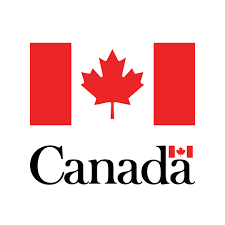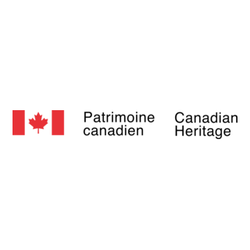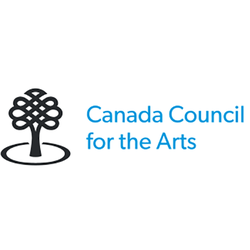
Listen, Hear Our Voices — Small projects
At a glance
- Maximum amount : 25,000 $
- Up to 100% of project cost
- Open Date : December 11, 2023
- Closing date : January 24, 2024
- Information and cultural industries
- Canada
- Non-profit
- Public or Parapublic institution
- All revenue ranges
- All organization sizes
- Indigenous Peoples
- Culture and Arts
- Economic, Social and Community Development
- Diversity and Inclusion
- General public
- Indigenous peoples
- Rural / Remote communities
- Artists / creatives
- Nonprofits / charities
- Academia / students
- Community leaders
- All structures
- Local
- Regional
- Provincial
- National
Overview
Build the skills, knowledge and resources needed to digitize and preserve documentary heritage related to Indigenous languages and cultures.
Activities funded
This grant targets projects from Indigenous nations, governments, and non-profit organizations across Canada. Therefore, eligible organizations are those within Canadian geographical areas.
- Eligible organizations must be located in Canada.
- It includes Indigenous communities from all regions within Canada.
Eligibility
Eligibility criteria for the Listen, Hear Our Voices grant apply to organizations involved with Indigenous documentary heritage efforts.
- Applicant must be an Indigenous nation (First Nations, Inuit or Métis Nation), Indigenous government, or Indigenous non-profit organization.
- Examples of eligible organizations include cultural centres, community organizations, historical societies, libraries or archives, museums, and band councils or departments within a nation’s Administration.
- Organizations must be not-for-profit and provide proof of their non-profit status unless they are band councils or Indigenous government departments, which are assumed to be not-for-profit.
- Both incorporated and non-incorporated organizations can apply; however, incorporated organizations need to provide proof of incorporation.
- Non-incorporated organizations need a letter of reference from a recognized government or association and are encouraged to collaborate with an incorporated organization for large project funding.
- Organizations with outstanding reports from previously funded projects by LAC are ineligible.
Who is eligible?
Primary applicants eligible for Listen, Hear Our Voices funding must be Indigenous nations (First Nations, Inuit, or Métis Nation), Indigenous governments, or Indigenous non-profit organizations. These include cultural centres, community organizations, historical societies, libraries or archives, museums, band councils, or departments within a nation’s Administration, as well as First Nation, Inuit, or Métis Nation government organizations. Organizations must be not-for-profit and provide proof of non-profit status. Both incorporated and non-incorporated organizations can apply, with non-incorporated organizations requiring a letter of reference from a recognized government or association. Organizations with outstanding reports from previously funded projects through LAC are ineligible. Business and for-profit Indigenous organizations cannot apply but can be hired for services. Secondary applicants can partner with primary applicants but businesses and for-profit Indigenous organizations cannot receive funding.
Who is not eligible
This grant focuses on supporting Indigenous non-profit and government organizations, excluding certain businesses from eligibility. The restrictions ensure that funds prioritize culturally significant projects related to Indigenous documentary heritage.
- Businesses and for-profit Indigenous organizations.
- Organizations, and their direct affiliates, with outstanding reports from previous LAC-funded projects.
Eligible expenses
This grant supports activities aimed at preserving Indigenous languages and cultures through digitization. Eligible projects focus on converting historical media to digital formats, skill-building in digitization, and improving resource availability within communities.
- Digitization of documentary heritage from formats like textual documents, photographs, audio cassettes, reel-to-reel, VHS tapes, and video cassettes.
- Preparing items for digitization.
- Creating an inventory of the collection.
- Prioritizing items in danger of being lost.
- Describing and organizing items in their digital or original formats.
- Developing a business case for a shared digital preservation system.
- Training staff on digitization and creating training materials.
- Developing and running training programs to help communities digitize their own collections.
- Buying or repairing digitization equipment.
- Purchasing software to digitize textual, photographic, or audiovisual materials.
Eligible geographic areas
The grant covers eligible expenses related to digitization projects, training, equipment, administration, and specific project management associated costs.
- Digitization by your organization, a partner, or a third-party.
- Consultants and professional services related to digitization.
- Purchase, rental, or repair of equipment or software to digitize and preserve material.
- Description, transcription, and development of finding aids for materials being digitized within the project.
- Shipping and insuring material.
- Salaries and wages to finish your project.
- Training and workshop activities.
- Travel for project staff (must follow the National Joint Council's Travel Directive).
- Honorariums and gifts of protocol to Indigenous Elders.
- General administration costs such as office supplies, long-distance telephone calls, postage, and messenger services.
- Project management fees (project budget and schedule oversight) cannot be more than 15% of funding you are requesting.
- Total general administration costs cannot be more than 20% of the funding amount, including the 15% limit on project management fees.
Selection criteria
The evaluation and selection of projects for the Listen, Hear Our Voices grant are based on criteria aimed at ensuring the effective digitization and preservation of Indigenous documentary heritage.
- Project feasibility and approach.
- Urgency of the work due to the condition of the collection.
- Benefits of the project for the applicant organization, partner organizations, communities, researchers, and Canadians.
How to apply
Develop Project Idea Identify a project idea that focuses on digitizing documentary heritage related to Indigenous languages and cultures.
Prepare Project Description Write a detailed description of your project, including its goals, activities, and expected outcomes.
Gather Required Documents Collect your organization’s incorporation number if applicable.
- Obtain a letter of reference if your organization is non-incorporated.
- Prepare a projected budget for the project, including details of other funding sources.
Complete Application Form Download the application form from the provided link.
Email Application Attach the completed application form along with any supporting documents.
Await Confirmation and Feedback Wait for an email confirming receipt of your application.
- If approved, follow the instructions in the confirmation email for the next steps.
- If declined, review the reasons provided and consider future applications or adjustments.
Additional information
Here is an additional relevant detail for this grant:
- The review committee, composed of Indigenous people, considers both professional and personal perspectives during the assessment.
Contacts
Frequently Asked Questions about the Listen, Hear Our Voices — Small projects Program
What is the Listen, Hear Our Voices — Small projects?
How much funding can be received?
What expenses are eligible under Listen, Hear Our Voices — Small projects?
What is the deadline to apply?
Is the Listen, Hear Our Voices — Small projects a grant, loan, or tax credit?
Who are the financial supporters of the Listen, Hear Our Voices — Small projects?
Who is eligible for the Listen, Hear Our Voices — Small projects program?
Who can I contact for more information about the Listen, Hear Our Voices — Small projects?
Where is the Listen, Hear Our Voices — Small projects available?
Are Indigenous Peoples eligible for the Listen, Hear Our Voices — Small projects program?
More programs like this

Industrial Research Assistance Program (IRAP) – AI Assist
National Research Council Canada (NRC)
Strategic Innovation Fund (SIF)
Innovation, Science and Economic Development Canada (ISED)
Creative Export Canada (CEC) — Export-Ready Stream
Canadian Heritage
ISED — Artificial intelligence (AI)
Innovation, Science and Economic Development Canada (ISED)
Global Innovation Clusters
Innovation Canada

Production program — French market budgets under $3.5M
Telefilm Canada
IP for Business
Canadian Intellectual Property Office (CIPO)
Canada Book Fund (CBF) — Support for Organizations – Internships
Canadian Heritage